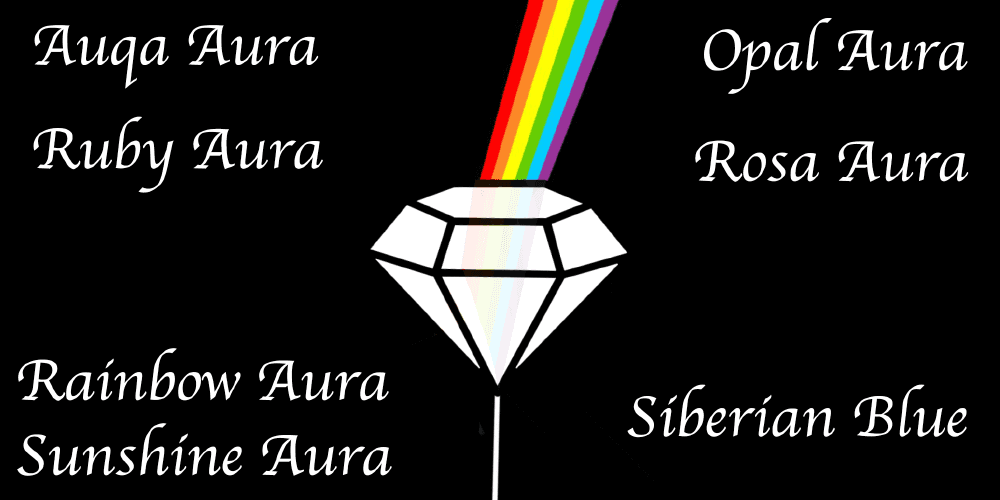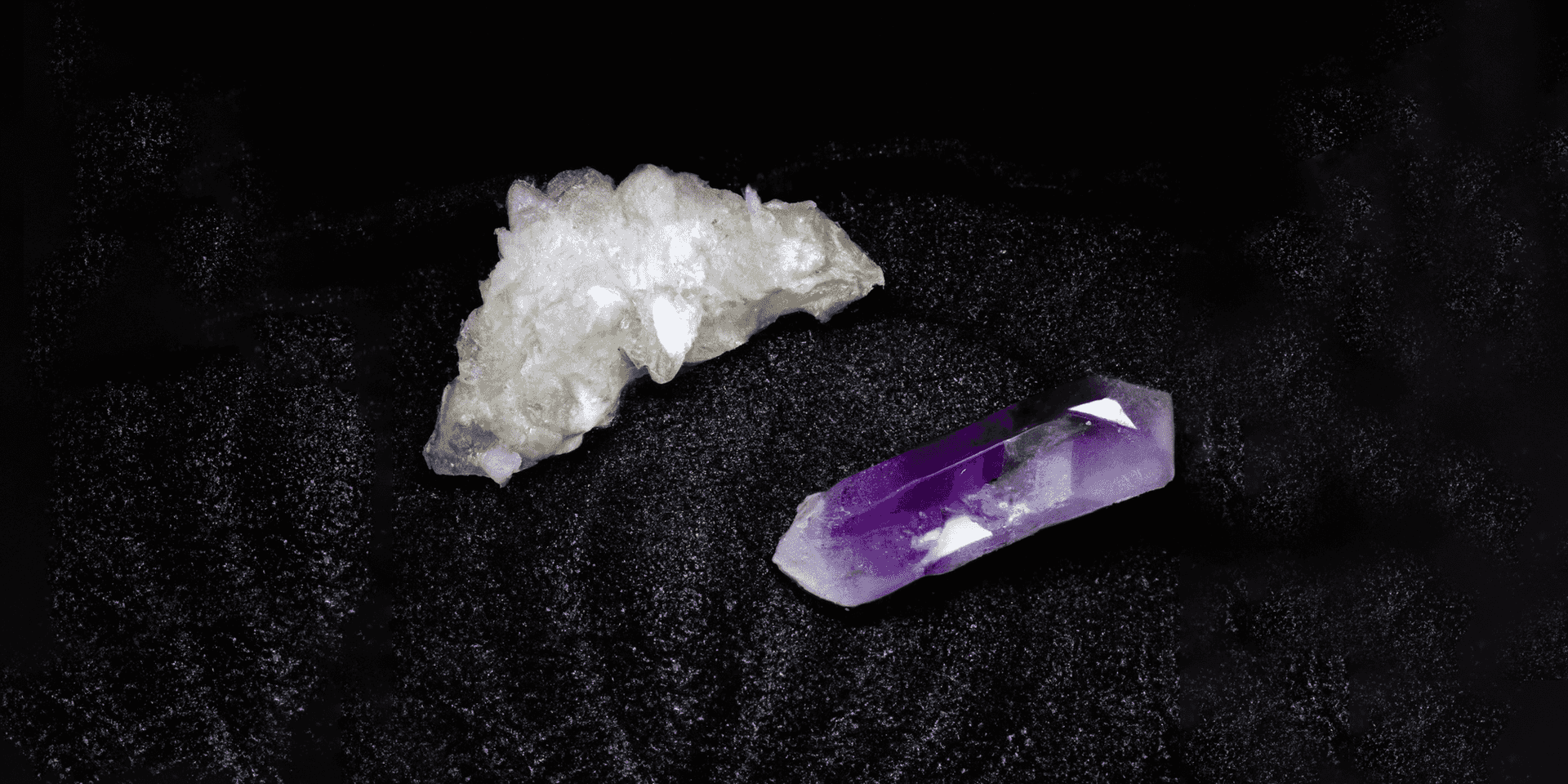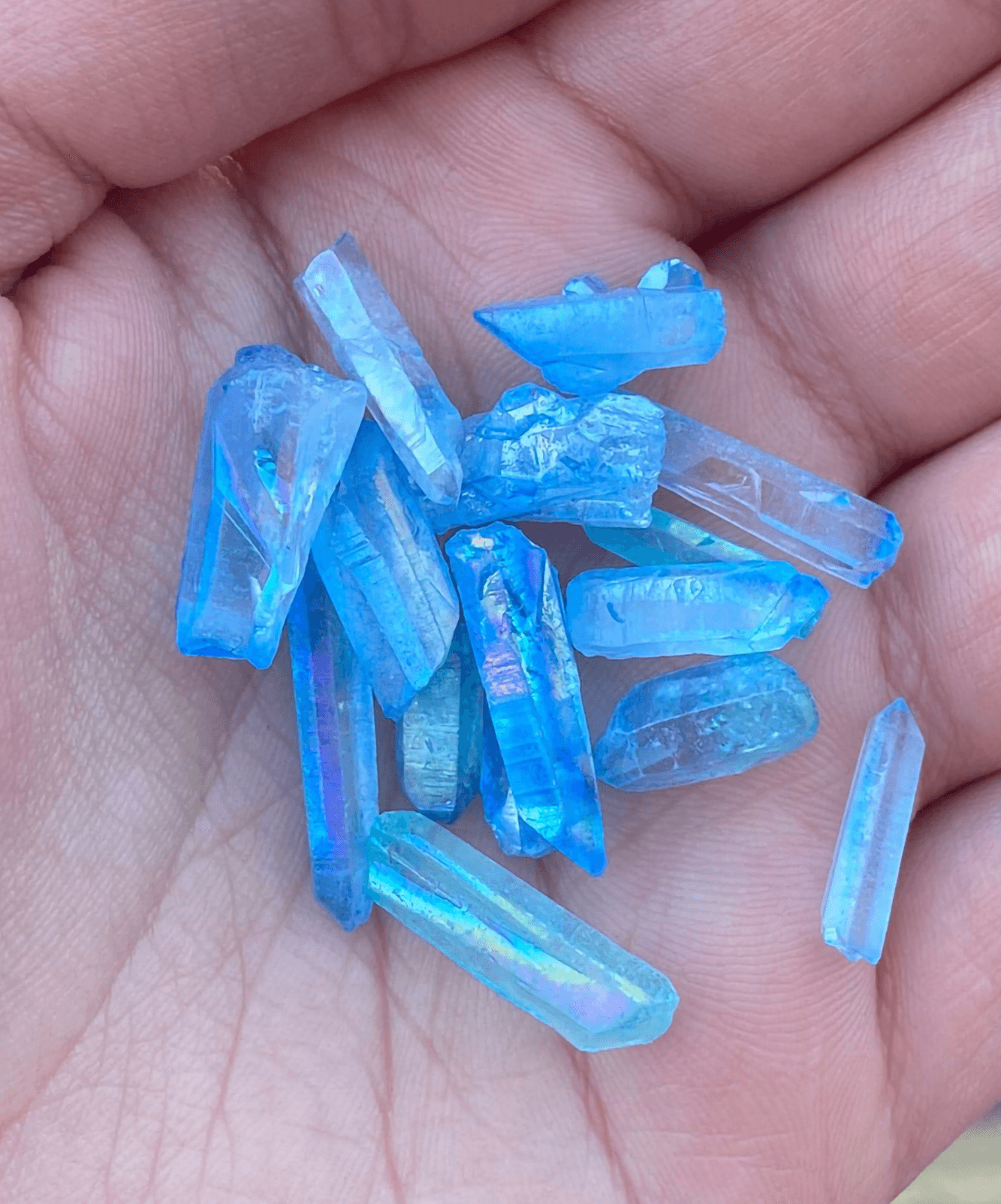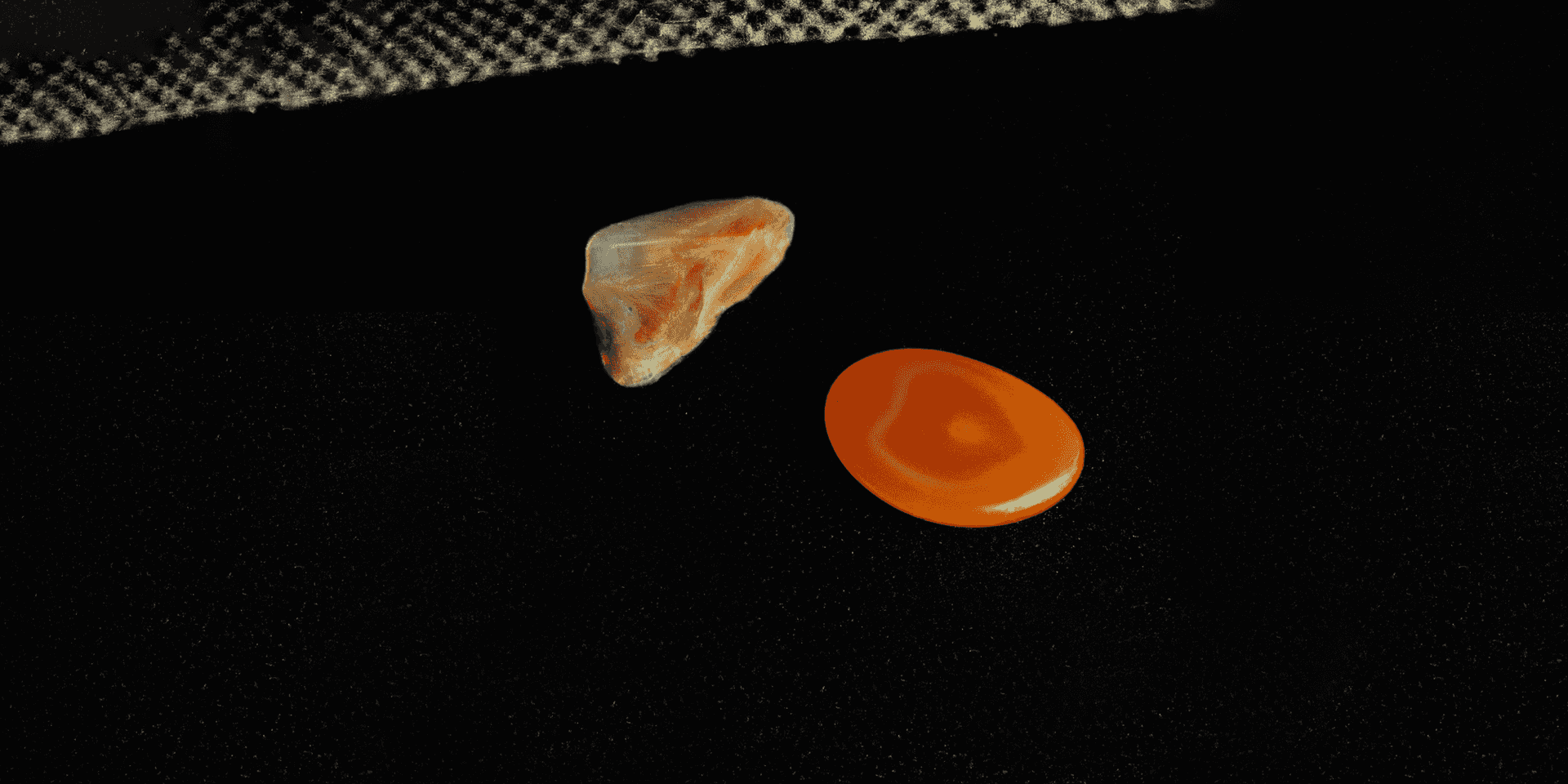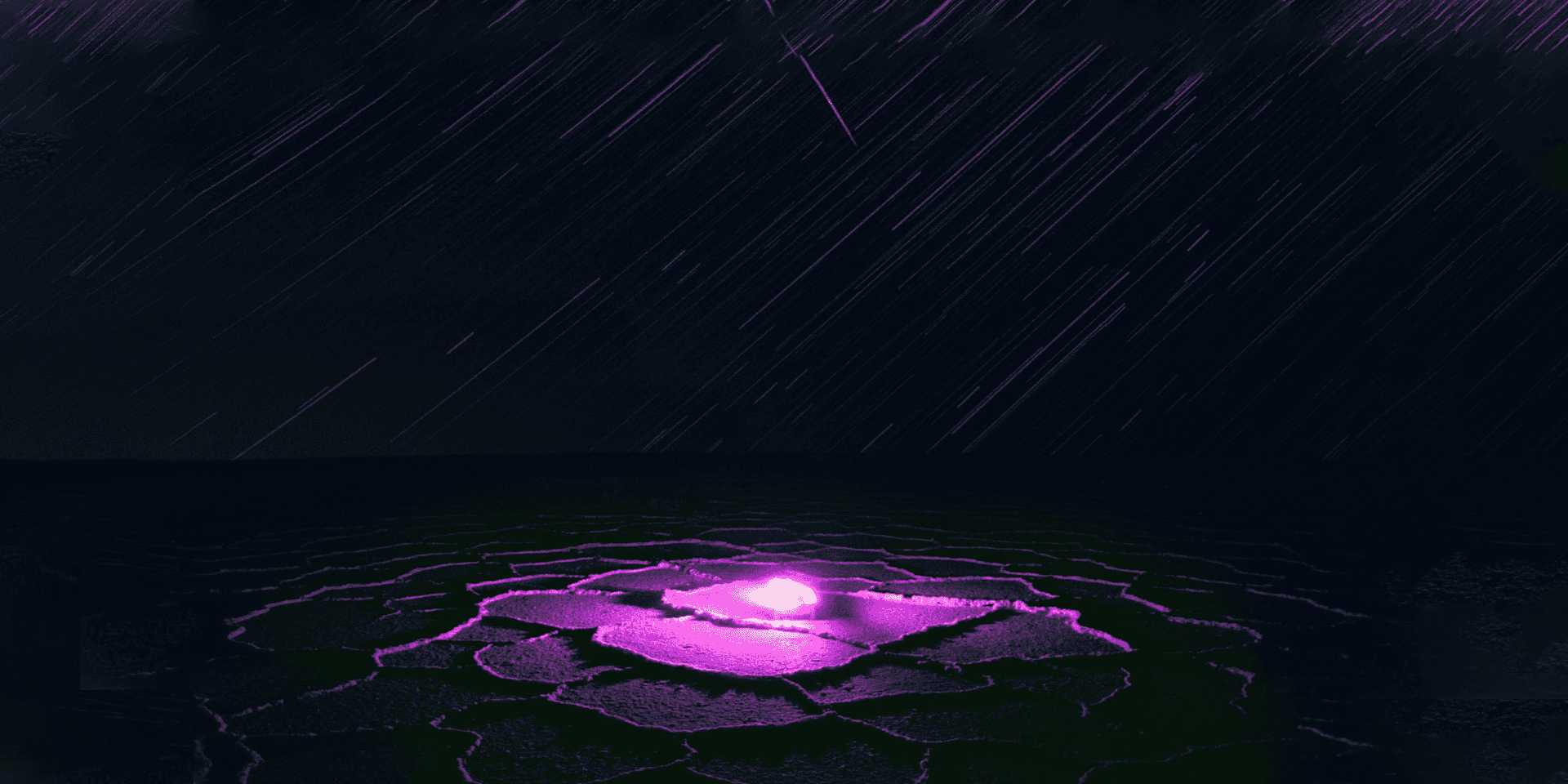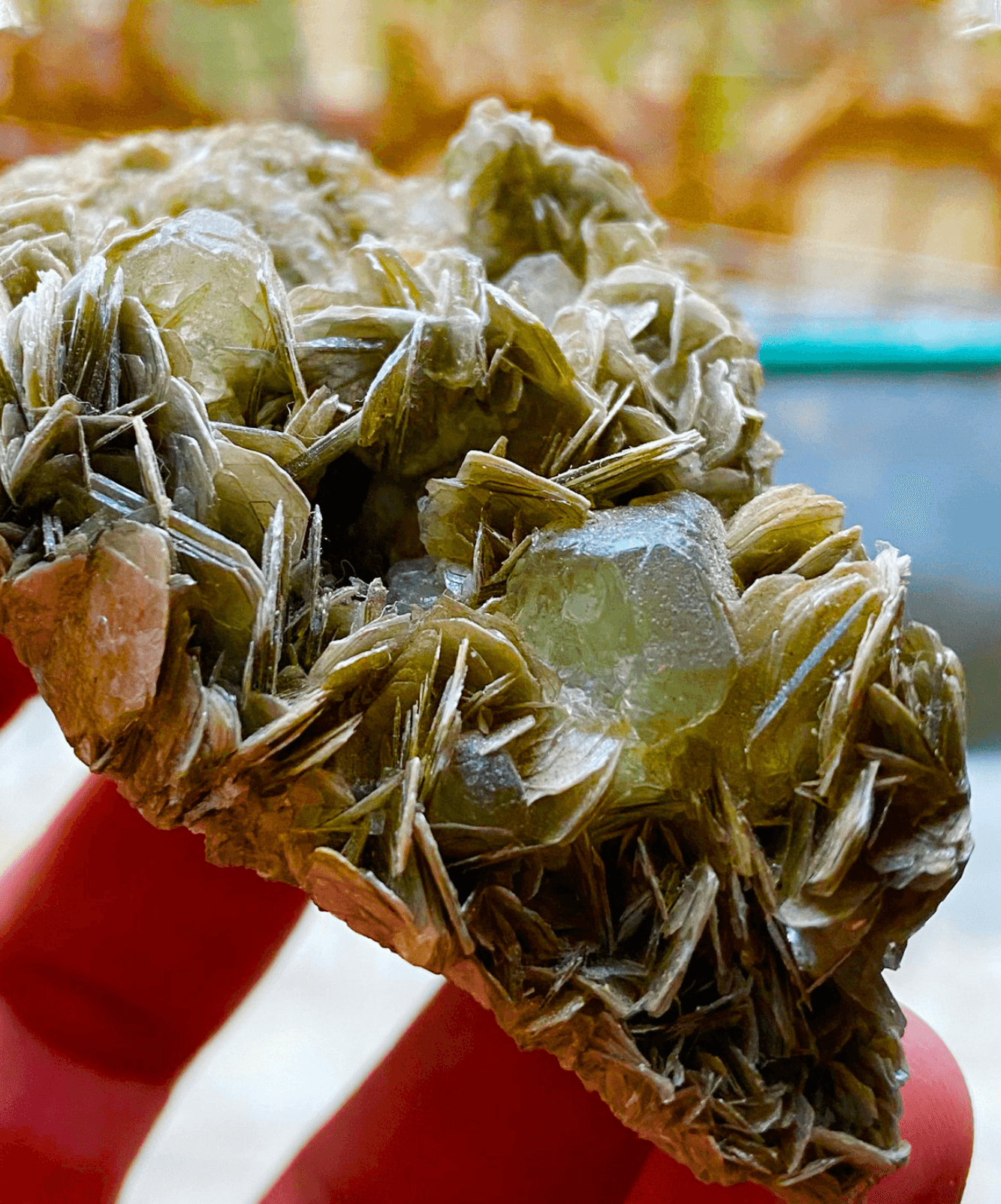
Muscovite
Muscovite has one of the most unique structures of any mineral. This flaky structure could be why it has such powerful properties like...
Quick Look:
Crown, Heart, and Third Eye Chakra
Pink, gray, brown, green, violet, yellow, red, white
Flaky layers of pearl-esqe mineral
6 / 10 Rarity
Discovered in First reported in 1568's Russia
Mined in Mined in Austria, Brazil, Czech Republic, New Mexico, Russia, Switzerland, and the United States
Chinese name: 白雲母
General Care for a Muscovite
Unless you're a big fan of Talc, Muscovite is probably the most fragile stone in your collection.
Whether you have raw Muscovite or a tumbled stone, you'll need to be careful when storing this crystal.
When working with raw Muscovite you'll need to be careful about applying pressure in general. Even a small amount will cause the flaky structure to break.
If you've added some tumbled Muscovite to your collection, then the stone's naturally flaky exterior is no longer a problem.
But it's still soft.
Really soft.
With a rock bottom (ha) score of 2.5 on the Mohs scale of mineral hardness, it's only as hard as your fingernail.
With sharpened nails, you could write your name on the stone!
Now if you want to get rid of your name on the crystal, all you have to do is give it a cleaning with a hard toothbrush.
How To Clean Your Crystal
Good news! The softness of Muscovite doesn't mean you can't clean it.
It is actually one of the more suitable stones for an intense cleaning job.
There are some crystals that shouldn't be washed with soap, like Rhyolite.
Then there are some gems like Dolphin Stone that get damaged from lemon juice.
But not Muscovite!
Muscovite is extremely resistant to acid and will not be harmed by vinegar or lemon juice.
Soap is fine too.
Bubble bath time!
How do you give your Muscovite a vinegar bath? Follow these easy steps:
- Fill your favorite bowl with warm vinegar or lemon juice.
- Soak your Muscovite mineral in the acid bath.
- Using a clean, soft bristle toothbrush, VERY gently scrub the rock.
- Rinse the stone well under warm water and let dry for at least a day.
Much like scented soap, vinegar will leave a smell. But a quick warm water bath will get rid of the smell.
Will It Fade?
There are a lot of crystals that will fade if they spend too much time in the sunlight.
Amazonite, Aquamarine, and Sodalite are a few gemstones that are sensitive to sunlight.
Real Muscovite will not fade in the sun.
So if you've got a piece that you want to take on a picnic or to the beach... do it!
How to Charge Muscovite
Charging your raw Muscovite or tumbled stone is as simple as letting it return to Mother Earth for 24 hours.
Dig into the ground a bit, lay it to rest, and let it recharge.
We suggest using a cloth bag or a form of natural covering to dirt from falling into your raw Muscovite's porous surface.
If you're working with a tumbled stone, no need!
As with most crystal, a nice night in Full Moon moonlight will do wonders to cleanse your crystal too.
Check If Your Crystal Is Real
If you're buying raw Muscovite, then you've got nothing to worry about.
Faking any raw crystal is already a tall task, but untumbled Muscovite?
Whew.
Good luck.
The flaky structure of the raw crystal means that the effort is worth the reward. So bad guys don't bother.
Now, tumbled Muscovite? That's a different story.
Due to Muscovite's scarcity and price, this gemstone is a solid target to be faked.
Faking a shiny Muscovite stone isn't simple, though, and you can quickly check if your gem is real or not through a couple of tests.
Fake Muscovite is typically made from Lead Glass, which has an uncanny likeness to true Muscovite crystal.
THE FOG TEST
If you're looking at a Muscovite mineral and want to confirm its authenticity, just pop a mint and breath on it.
Okay.
You don't need a mint.
But you should actually breathe on your crystal to check if it's a fake.
For real Muscovite, the fog from your breath will disappear almost instantly (~1 second). But if it's a fake crystal, it may take 5 seconds or more to even start evaporating.
By doing this fog test, we're leveraging the fact that fake Muscovite is almost always glass (as opposed to Resin), which holds moisture better than the real stone.
BUBBLES
We can continue to exploit the properties of glass by searching for bubbles in the "real tumbled Muscovite."
Look closely at your gemstone and see if you can spot any bubbles inside.
Not inclusions, but actual bubbles.
You'll see pockets of air trapped during the creation of the glass—proving that this "gemstone" is not actually a gem.
Due to how quickly the glass cools, it's impossible to make a glass gem without any air pockets inside. Though you might need a magnifying glass to see the bubbles since they are so tiny.
Properties of Muscovite
Found in igneous, metamorphic, and sedimentary rocks across the world; there are lots of ways to use Muscovite mineral.
We'll break down how this stone can be used for mental, physical, and spiritual health in the sections below.
Muscovite Healing Properties
Muscovite is the commonest form of white mica. It is a mystical stone with a strong angelic contact, stimulating awareness of the higher self.
Used in scrying, this visionary stone links to the highest spiritual realms.
Muscovite stimulates the heart chakra, facilitates astral travel, and opens the intuition and psychic vision.
Muscovite has the ability to allow recognition of the flaws in humanity while also stimulating unconditional love and acceptance.
It is a reflective stone, mirroring back and allowing you to recognize -the parts of yourself that you do not recognize and therefore see "out there."
It helps you to see that the things you do not like in another are really the characteristics you cannot accept in yourself. It then aids in the integration and transformation of these qualities.
Psychologically
Muscovite disperses insecurity, self-doubt, and clumsiness. It is useful for those who suffer from dyspraxia and left-right confusion.
Muscovite eliminates anger and nervous stress to bring flexibility to all levels of being.
It assists in looking forward joyfully to the future and back to the past to appreciate all the lessons that have been learned.
By seeing yourself as others see you, Muscovite aids in changing the image presented to the outside world. It supports you during the exploration of painful feelings.
Mentally
Muscovite aids problem-solving and stimulates quick wittedness.
It facilitates the clear expression of thoughts and feelings.
Physically
Muscovite improves your appearance. It imparts sheen to the hair and sparkle to the eyes.
It helps the body to achieve its most appropriate weight.
It also releases tension within the physical body by aligning the subtle bodies with the physical body-- bringing about balance.
Physical Properties
You would think that all rocks would be pretty hard.
Turns out... some aren't.
The hardness of raw and tumbled Muscovite is only a 2.5 on Mohs scale of mineral hardness. Making it one of, if not THE, softest stone you will have in your collection.
What makes Muscovite unique is the sheeted outer exterior of the mineral.
This is often referred to as "books" because of how the layered sheets look like a novel from the side.
Rarity
Muscovite is not expensive or rare despite its unique appearance and metaphysical properties.
You can find tumbled stone for as low as $1 per carat.
Larger, higher quality gems can be pricer at $10 per carat, but you will seldom see a price this high.

